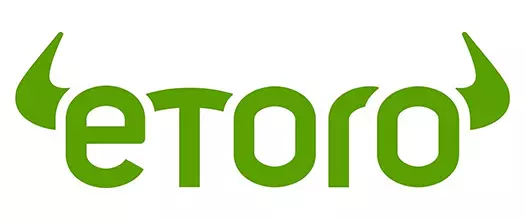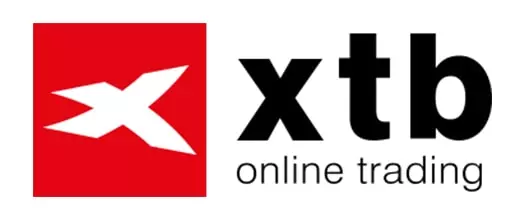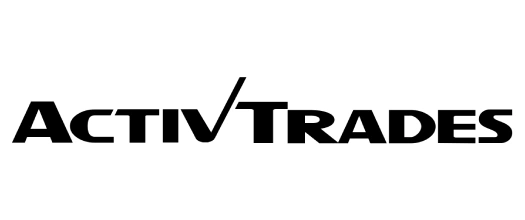Fractional share trading has revolutionised investing by allowing individuals to purchase portions of a stock rather than whole shares, making high-value stocks accessible to traders with smaller budgets. This approach enables precise portfolio diversification, allowing investors to start with as little as £1, fostering inclusivity in the financial markets.
 eToro
eToro XTB
XTB ActivTrades
ActivTradesBelow you can find more information about the best platforms to trade fractional shares in the UK:
- At eToro, customers can trade fractional shares and purchase less than one full share in more than 6,200 companies across the UK, the US, Europe, and Asia. Stock owners can hold their shares without custody fees. UK clients can buy and sell shares without paying commissions, covering only the market spreads.
- XTB enables British customers to invest in fractional shares with as little as £10. The broker charges no commissions on fractional share investments for monthly trading volumes of up to £100,000. Customers exceeding this threshold incur a 0.2% commission, with a minimum of £10.
- ActivTrades allows customers from all walks of life to gain exposure to the stock markets by trading fractional shares of over 1,000 companies, including more than 120 UK listings. This is possible through CFDs without added mark-ups or other hidden charges. However, traders are eligible for dividend adjustments on long positions.
In the UK, this innovation aligns with a strong savings culture, where 76% of Brits set financial goals for 2025, such as building emergency funds or saving for significant milestones. With interest in investing on the rise, evidenced by the growing use of Stocks and Shares ISAs, fractional shares offer an attractive entry point for those looking to grow their wealth while navigating the evolving financial landscape.
In this publication, we will delve into the world of fractional shares, exploring their nature and benefits:
- What fractional shares are and how they work.
- How dividends and ETFs work with fractional ownership.
- Tips for selecting the best brokers offering fractional share trading in the UK.
- Pros, cons, and answers to common questions.
What Are Fractional Shares?
Fractional shares allow investors to purchase a portion of a stock, making high-value equities accessible to those with limited budgets. For example, instead of buying a full share of Barclays at its current price, an investor can acquire a fraction, such as 0.5 shares, by specifying the amount they wish to invest rather than the number of shares. If Barclays shares trade at £150, an investor with £75 can purchase half a share, gaining proportional ownership and exposure to its potential gains or dividends.
This approach is particularly beneficial for diversification, enabling investors to spread their funds across multiple stocks without needing to buy whole shares. Fractional share trading democratises investing, aligning with the UK’s growing interest in wealth-building strategies amidst its strong savings culture. Platforms that offer fractional shares make it easier for individuals to participate in the stock market, even with modest financial resources.
Fractional Shares of ETFs
Fractional ETF investing allows UK investors to purchase portions of exchange-traded funds, enabling precise portfolio diversification with minimal capital. Platforms like XTB offer fractional ETF trading, where investors can buy slices of funds for as little as £1, without needing to buy entire shares. This approach is particularly valuable for high-value ETFs tracking indices like the FTSE 100 or S&P 500, which might otherwise require significant upfront investment.
How It Works:
- Order Placement: Investors specify the monetary amount (e.g., £25) rather than share quantity. The platform calculates the fractional units based on the ETF’s current price.
- Execution: Trades are executed proportionally, with fractional ownership recorded in the investor’s account.
- Dividends: Investors receive dividends proportional to their fractional holdings (e.g., 0.5 shares = 50% of the per-share dividend).
Fractional Shares Dividends Calculation
Fractional shares allow investors to receive dividends proportional to their ownership stake, even when holding partial units of a stock. For example:
- Example 1: A trader owns 0.5 shares of Lloyds Banking Group (LLOY.LON). If Lloyds declares a dividend of £0.02 per share, the investor receives £0.01 (0.5 × £0.02).
- Example 2: Another trader holds 1.5 shares of BP (BP.LON) with a declared dividend of £0.07 per share, resulting in a payout of £0.105 (1.5 × £0.07).
Three Key Benefits of Fractional Share Dividends:
- Proportional Income: Earn dividends on exact holdings, even for partial shares.
- Cost-Effective Growth: Reinvest small dividends to compound returns without additional capital.
- Risk Mitigation: Diversify income sources across sectors by allocating dividends to multiple fractional holdings.
How to Pick the Best Brokers for Fractional Share Trading?
When it comes to trading fractional shares, choosing the right broker is crucial. UK traders should consider the following factors when selecting a broker:
- Regulatory Compliance: Ensure FCA authorisation for client fund protection and transparency.
- Trading Fees: Prioritise zero-commission platforms or low-cost brokers with minimal fees.
- Account Minimums: Opt for brokers with low minimum deposit requirements.
- Platform Features: Mobile compatibility, user-friendliness and the availability of automated tools for recurring fractional investments.
- Asset Variety: Access to ETFs, global stocks, etc.
- Customer Support: 24/7 availability via chat, phone or email.
- Research Tools: Real-time data, analyst reports and educational resources.
- Security: Two-factor authentication (2FA) and segregated client accounts under FCA rules.
- Transfer Flexibility: Check if fractional shares can be transferred between brokers.
- Dividend Handling: Transparent fractional dividend payouts and reinvestment options.
Advantages and Disadvantages of Fractional Shares
Fractional shares trading offers several benefits and drawbacks to UK traders. Here are some of the main advantages and disadvantages:
Advantages
- Diversification: Invest in multiple assets (e.g., high-value stocks, ETFs) with limited capital, spreading risk across sectors or regions.
- Market Entry with Reduced Capital: Start investing with as little as £1, bypassing high share prices (e.g., £200+ stocks).
- Flexibility: Trade precise amounts (e.g., £25 in an S&P 500 ETF) and automate recurring investments with tools like Pies.
- Lower Risk: Allocate smaller amounts to test strategies or mitigate exposure to volatile assets.
- Dividend Eligibility: Earn proportional dividends (e.g., £0.01 for 0.5 shares of a £0.02 dividend stock).
Disadvantages
- Small Losses Can Compound: Frequent small losses (e.g., £5 trades) may accumulate over time, eroding returns.
- Limited Stock Selection: Smaller or less popular companies may be unavailable for fractional trading.
- No Voting Rights: Fractional shareholders typically lack voting privileges in corporate decisions.
- Transfer Restrictions: Most platforms require liquidation before transferring fractional shares to another broker.
FAQs
In this section, we have compiled several frequently asked questions about fractional share trading.
Are fractional shares a good investment?
Yes, fractional shares enable traders with limited capital to gain access to stocks and ETFs that would not otherwise be accessible to them. With fractional share trading, they purchase a smaller piece of what they are already interested in. This leads to increased market access and diversification.
Can I hold fractional shares in a UK ISA?
Yes, under the new rules effective from 4 November 2024, certain fractional shares are permitted in ISAs if the underlying whole share is listed on a recognised exchange (e.g., LSE, NYSE). Previously, HMRC excluded fractional shares from ISAs, but recent reforms now allow them, subject to specific eligibility criteria.
Do fractional share owners have voting rights?
Voting rights associated with fractional shares can vary depending on the broker or company, so it is always best to check directly with your provider. Possibilities include no voting rights, proportional voting rights, proxy voting or voting rights through a nominee account.
Do fractional shares split during corporate actions?
Yes, stock splits adjust your holding proportionally (e.g., a 2:1 split turns 0.5 shares into 1 share).
Can I transfer fractional shares between UK brokers?
No, most UK brokers do not support transferring fractional shares to other platforms. Investors typically need to liquidate their fractional holdings before transferring cash to a new broker. Check your provider’s specific policies, as transfer restrictions are a key consideration under FCA Consumer Duty rules.